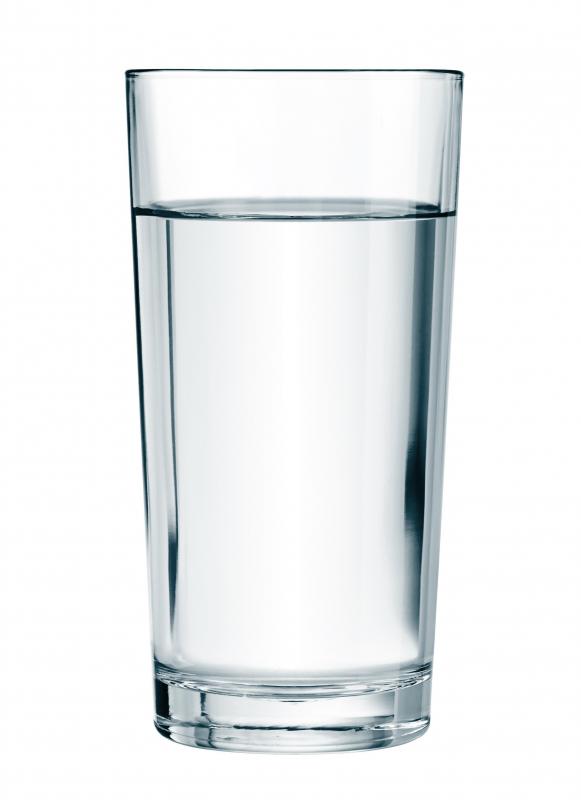At WiseGEEK, we're committed to delivering accurate, trustworthy information. Our expert-authored content is rigorously fact-checked and sourced from credible authorities. Discover how we uphold the highest standards in providing you with reliable knowledge.
How do I Choose the Best Food Poisoning Remedies?
A discussion of food poisoning remedies is always challenging. Some people do recover from food poisoning without medical intervention, but for others, a bout of food poisoning can be much more serious and it is possible that life is risked if traditional medical treatment is ignored. This is especially the case among medically vulnerable populations like young children, the elderly, people with suppressed immune systems, and pregnant women. Even with perfectly healthy adolescents and adults, sometimes worst-case scenarios occur. It therefore must be the advice of any reputable article on food poisoning to suggest the most important remedy is doctor care, and quite frequently the use of antibiotics, antifungal or antiparisitic medications.
When people first begin to show symptoms of food poisoning they may have vomiting and/or diarrhea, and many people could have a fever. In addition to doctor care, the most important food poisoning remedies focus on restoring body fluids that are lost. This means taking in liquids, preferably those with an electrolyte balance, that will keep the body hydrated. Rest is important too, since any activity uses the body’s liquid and may cause faster depletion.

At first, food poisoning often looks like stomach flu, and it’s been stated that many cases of “stomach flu” are actually mild food poisoning, especially with salmonella or listeria bacteria. The trouble is, it’s often hard to tell whether illness is the result of virus or a known agent that results in food poisoning. Sometimes this is made easier if a lot of people get sick at the same time, or if there is a known contaminated agent that has been consumed. This scenario doesn’t always occur.

In seeking out other food poisoning remedies, understanding underlying cause of illness can be important, but since the main remedy may be doctor care and fluid intake, it’s important to observe some warning signs that illness is too extensive for home treatment. These include fever over 101 degrees F (38.33 degrees C), and inability to keep down any liquids. Signs of growing fever, confusion, delusional thinking, extreme lethargy or seizures are indications not to wait in getting doctor care.

It is especially vital that infants, young children, immunocompromised patients and the elderly see a doctor right away if vomiting won’t stop within a couple of hours and no fluids can be taken. A person with these symptoms may need food poisoning remedies in a hospital. Nausea can be treated with anti-emetic drugs, and dehydration is usually treated with intravenous fluids.

Once vomiting or diarrhea has slowed, it might still take a few days for doctors to confirm the presence of the bacterial or other agent that is requiring food poisoning remedies. For this reason, they often place patients on what are called broad-spectrum antibiotics, which treat a variety of conditions. Continued rest and fluid is needed, though this can usually take place at home, and people are advised to immediately return to a doctor if symptoms begin to worsen again.

An ounce of prevention is worth a pound of food poisoning remedies. People should adhere to instructions for safe food handling, cooking meat to appropriate temperatures, and using proper refrigeration. Risky foods like the potato salad that has been sitting in the sun or fruits or vegetables that haven’t been thoroughly washed or properly prepared just aren’t worth eating. Food poisoning is not simply a benign illness and it may have severe consequence for a small percentage of the population. Understanding and observing food safety is ultimately the best preventative remedy.
AS FEATURED ON:
AS FEATURED ON:















Discussion Comments
@empanadas - I know what you mean! There are several steps you can take in the way of diarrhea treatment as well - eating things like bread, drinking milk, and eating crackers can all help to absorb that extra stomach acid that's tearing you up. Rice also helps in some cases. The good news is that this is a natural remedy that can be used at home before having to resort to a hospital.
@Kamchatka - You make very valid points and these steps can also be taken in the case that you have salmonella poisoning as well. Food poisoning can be very uncomfortable and even scary, especially if a child has it and it's very difficult to deal with whenever more than one family member has it at a time.
Symptoms can range from mild diarrhea to vomiting continuously for hours on end. Just thinking about that happening makes me cringe.
The thing is this: if you are dehydrated and have been throwing up for more than 24 hours you need to go to a hospital. This is true in food poisoning treatment as well as any other aspect of illness. There are also natural remedies, but the best one is sleep and liquids in order to flush things out of your system. That is the shortest, sweetest, and most to the point advice you can offer anyone.
Post your comments